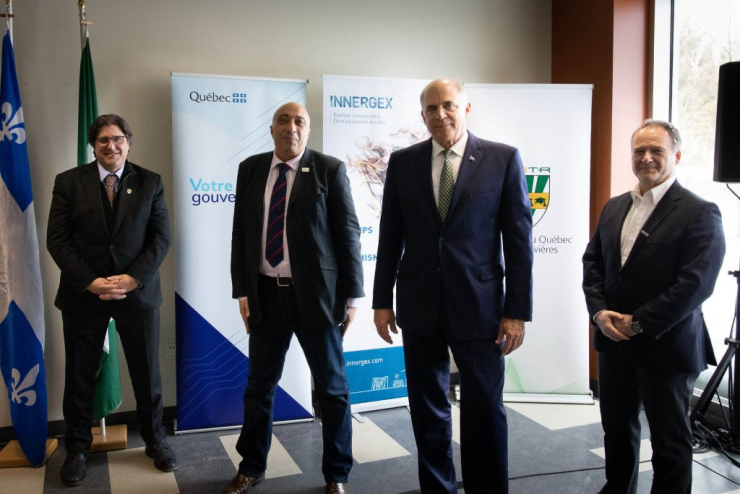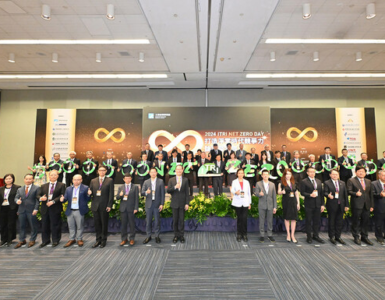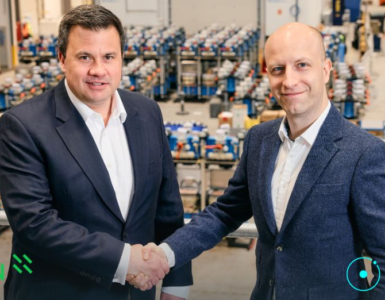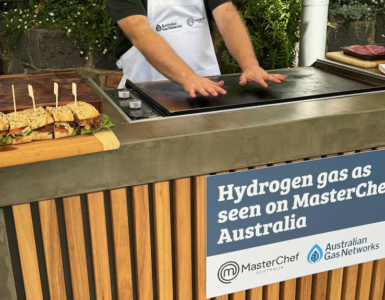UQTR and Innergex to Create more efficient and less expensive electrolyzers to produce green hydrogen.
The Université du Québec à Trois-Rivières (UQTR) and Innergex Renewable Energy Inc. (“Innergex”) announced the creation of a partnership chair in green hydrogen production. This new entity will devote its research work to the development of innovative and efficient materials and systems for the manufacture of renewable hydrogen.
The Innergex Chair will be headed by a world-renowned expert in the field of hydrogen research: Professor Bruno G. Pollet. Recently recruited by UQTR, he works at the Hydrogen Research Institute (IRH). The Chair receives significant financial support from Quebec’s independent renewable energy producer Innergex, whose activities span four countries.
Professor Pollet, said:
🔥 What about we co-host a webinar? Let's educate, captivate, and convert the hydrogen economy!
Hydrogen Central is the global go-to online magazine for the hydrogen economy, we can help you host impactful webinars that become a global reference on your topic and are an evergreen source of leads. Click here to request more details
To produce green hydrogen that does not come from fossil sources, we use water electrolysis.
“This process makes it possible to separate the water molecule thanks to a renewable electric current, to generate hydrogen and oxygen. The device used for this operation – which does not emit CO2, nor unwanted particle – is an electrolyzer.”
“The main objective of the Innergex Chair is to develop innovative materials to manufacture a new generation of electrolysers that are more efficient, more durable and cheaper. We expect to be able to commercialize these new materials within five years.”
Today’s electrolysers face cost, performance and durability issues. PEM (proton exchange membrane) electrolysers also use rare and expensive metals, such as platinum and iridium, from foreign countries.
The Chair’s work will focus on reducing the use of these critical and highly expensive metals and, eventually, replacing them with other elements that are more available, affordable and strategic for Canada, to develop new electrolysers at competitive prices, without compromising on performance and durability.
Thanks to the partnership with Innergex, this innovative technology will also be able to be tested in an industrial context, with a view to large-scale production. The objective is also to develop a Quebec and Canadian hydrogen value chain, from metal extraction to the production of electrolysers and green hydrogen on Canadian soil.
Many spin-offs
In addition to Innergex, the new Chair will benefit other local companies that will be able to grow by joining the supply chain related to the manufacture of new electrolysers.
“We will thus participate in the deployment of an important Quebec and Canadian industrial ecosystem specializing in the production of renewable hydrogen, which will create jobs and serve new markets,” comments Professor Pollet.
The innovative green hydrogen production systems developed by the researcher and his team will also contribute to the protection of the environment, as they will generate no greenhouse gases and will use clean and renewable energies.
By facilitating the manufacture of renewable hydrogen, the Chair will also contribute to the increased use of this non-polluting fuel which, when converted back into electricity thanks to a hydrogen fuel cell, generates only water.
the Chairholder, said:
The Innergex Chair will also play an important role in attracting graduate students and training a highly skilled workforce.
“It will also stimulate the development of interdisciplinary collaborations with researchers from various backgrounds, as well as the establishment of partnerships even on the international scene.”
An investment in excess of one million dollars
Funding for the new Chair will be provided by Innergex ($625,000 over 5 years). The research projects led by Professor Pollet’s team will also benefit from the financial support of the Ministère de l’Économie et de l’Innovation ($450,000 over 3 years), through the Support Program for Research and Innovation Organizations.
Other contributors may eventually be added to enhance this initial funding.
Pierre Fitzgibbon, Minister of Economy and Innovation and Minister responsible for Regional Economic Development, said:
In addition to making Québec industries less polluting, green hydrogen will contribute to the achievement of our ambitious greenhouse gas reduction targets.
“To consolidate Quebec’s position as a leader in this sector of the future, we must invest in industrial innovation, and that is exactly what the UQTR project will allow. The hydrogen made from our hydropower will be one of the greenest in the world. We must continue research to optimize its large-scale production.”
Jean Boulet, Minister of Labour, Employment and Social Solidarity, Minister of Immigration, Francisation and Integration, Minister responsible for the Mauricie region and Member for Trois-Rivières, said:
In mauricie, we have state-of-the-art research infrastructures and a port industrial park with a major hydrogen production plant.
“Our region is therefore the ideal place to carry out this project, which will promote the growth of this sector in Quebec. I am convinced that UQTR, with its experts and highly qualified researchers, has the assets to carve out a place for itself among the leaders in research and innovation in this sector of the future,”
Jonatan Julien, Minister of Energy and Natural Resources and Minister responsible for the Côte-Nord and Gaspésie–Îles-de-la-Madeleine regions, said:
The transition to a lower-carbon economy necessarily involves increased use of renewable energies, such as green hydrogen.
“Collectively, we must seize this opportunity to develop our expertise in this area and further integrate this new form of energy. The research led by UQTR and its institute will allow us to take a giant step in this direction, in particular by encouraging the development of hydrogen production and use technologies in Quebec,”
Michel Letellier, President and Chief Executive Officer of Innergex, said:
At Innergex, we have been working for more than 30 years to create a better world through renewable energy.
“We are always on the lookout for new technologies that can contribute to an energy transition towards a greener future. We want to continue to be part of the solution by collaborating in the research and development of green hydrogen expertise.”
“We are proud to contribute to the implementation of this new Chair in partnership with UQTR, whose benefits for Quebec but also for the entire industry will be significant. Thanks to hydroelectricity and the wind energy sector, Québec has important assets to help green our environment.”
For his part, UQTR Rector Christian Blanchette stressed the importance of the Innergex Chair in Green Hydrogen Production.
“Our university has long assumed a certain leadership in the field of hydrogen research. With the advent of this new chair, we will increase our contribution to the development of the green hydrogen sector. This is an essential niche for Quebec for an energy transition that touches on the multitude of sectors where direct electrification is not an alternative.”
“Our province is already well positioned because it has a large amount of hydroelectricity that can be used for water electrolysis. The technological advances generated by the Chair will strengthen this positioning.”
“Thank you to the Chair’s partners for their support and congratulations to Professor Pollet, who will lead this new research unit with all the dynamism and expertise we know him. There is no doubt that our planet will be better off, thanks to the achievements of this eminent researcher and his team,” he said.
An avant-garde researcher, internationally renowned
Professor Bruno G. Pollet holds a PhD in Chemistry from Coventry University (England). He has more than 20 years of experience in the field of hydrogen research. He is internationally recognized for his innovative work on hydrogen fuel cells and hydrogen production.
His journey as a researcher has taken him from the United Kingdom to Norway, via Japan and South Africa.
He has acquired a solid experience in the field of energy system integration for hydrogen fuel cells and water electrolysers dedicated to transport and stationary applications. He has also managed various programs and projects with European, American, Canadian, African and Asian industrialists.
Author of numerous scientific publications, Professor Pollet is a member of several international organizations related in particular to hydrogen and chemistry.
Thus, in 2020, he was appointed President of the Green Hydrogen Division of the International Hydrogen Energy Association (IAHE). He also has extensive experience teaching and supervising students.
In recent years, Bruno G. Pollet has worked as a full professor of renewable energy at the Norwegian University of Science and Technology (NTNU), where he led the NTNU Hydrogen Team.
Since 2020, he has also been an associate professor at the Hydrogen Research Institute (IRH) at the Université du Québec à Trois-Rivières. In the summer of 2021, he obtained the status of Professor of Chemistry in the Department of Chemistry, Biochemistry and Physics at UQTR.
In addition to working at the IRH as Deputy Director of Scientific Development and Partnerships, Professor Pollet will also be involved in the new joint research unit of UQTR and the Institut national de la recherche scientifique (INRS), dedicated to the development of advanced materials and technologies for a decarbonized economy.
Bruno G. Pollet also holds the Tier 1 Canada Research Chair in Green Hydrogen Production, funded by the Natural Sciences and Engineering Research Council of Canada (NSERC), and directs the Green Hydrogen Laboratory at UQTR.
About Innergex Renewable Energy Inc.
Innergex believes in a world in which abundant renewable energy fosters healthier communities and encourages shared prosperity for more than 30 years now.
As an independent producer of renewable energy that develops, acquires, owns and operates hydropower plants, wind farms, solar farms and energy storage facilities, Innergex believes that producing energy from renewable sources will pave the way for a better world.
Innergex operates in Canada, the United States, France and Chile and manages a large portfolio of 80 high-quality operating assets with a net installed capacity of 3,152 MW (gross installed capacity of 3,852 MW) and an energy storage capacity of 150 MWh, including 40 hydroelectric plants, 32 wind farms and 8 solar farms.
It also holds an interest in 12 projects under development with a total net installed capacity of 733 MW (gross installed capacity of 770 MW) and an energy storage capacity of 329 MWh, of which 3 facilities are currently under construction, and potential projects at various stages of development with a total gross capacity of 7,122 MW. Thanks for staying up to date with Hydrogen Central.
Its approach to creating shareholder value is to generate consistent cash flows, present an attractive risk-adjusted return and distribute a stable dividend.
READ the latest news shaping the hydrogen market at Hydrogen Central
Create more efficient and less expensive electrolysers to produce green hydrogen, March 17, 2022








